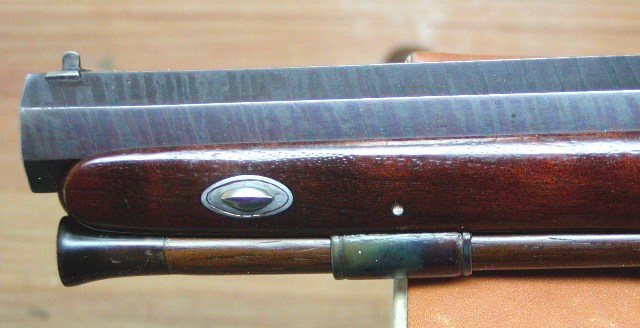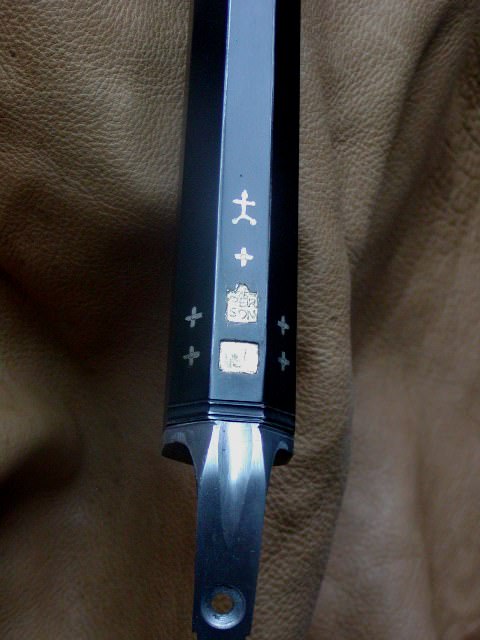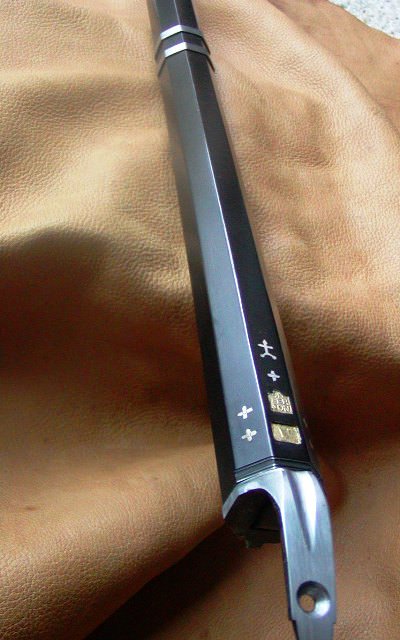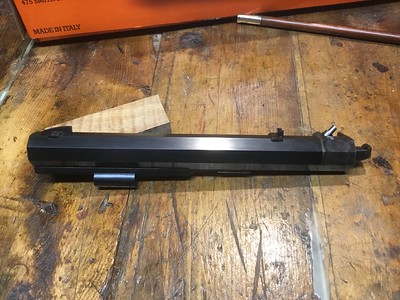Col. Batguano
75 Cal.
- Joined
- Feb 10, 2011
- Messages
- 5,039
- Reaction score
- 1,424
I've watched a whole bunch of Anvil Gunsmithing episodes on You Tube where the host Mark Novak uses a wire carding wheel he got from Brownell's to knock back active rust (after boiling the parts in water to re-activate the rust) to turn it back in to blueing (or browning) when he is conserving or restoring historical firearms. It is a purpose-built wire wheel, SPECIFICALLY for carding, not your average hardware store bench grinding wire wheel! He seems to imply that, because the wires in the wheel are very fine, and relatively soft, (he repeatedly runs his fingers in to the spinning wheel in his videos) that it is not prone to knock back the sharp edges of things like engraving or firearms markings. This wheel is somewhat different than the normal coarse wire brush that takes everything off metal taking it back to a shiny bare state. He says you can do the same thing with old blue jeans, or hand using 4-0 steel wool, which is how I've done it in the past myself.
My questions are these;
Has anyone here used this sort of technique (powered wire wheel) in their browning? If so, what did you use as your power source, and the RPM rate? I could easily see setting it up in a drill press at one of the various speeds, but am also wondering if a drill press itself even gets fast enough.
I'm also considering using this very technique on some of my other older firearms, where the finish is something of a mix of original blueing, and chocolate colored patina. Same questions as above. Has anyone else here tried that? Your results?
I'm chicken to be the first guy out of the box on this, and my next thread be a mea culpa along the lines of; "Sorry I gave everyone here bad advice that wrecked all your hard work."
My questions are these;
Has anyone here used this sort of technique (powered wire wheel) in their browning? If so, what did you use as your power source, and the RPM rate? I could easily see setting it up in a drill press at one of the various speeds, but am also wondering if a drill press itself even gets fast enough.
I'm also considering using this very technique on some of my other older firearms, where the finish is something of a mix of original blueing, and chocolate colored patina. Same questions as above. Has anyone else here tried that? Your results?
I'm chicken to be the first guy out of the box on this, and my next thread be a mea culpa along the lines of; "Sorry I gave everyone here bad advice that wrecked all your hard work."
Last edited:










